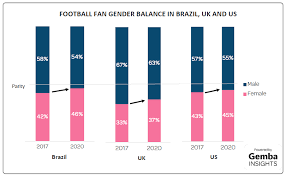
Introduction
The concept of a biased sports fan has always been prevalent in the realm of sports. These fans often display strong loyalty toward their favourite teams, sometimes leading to skewed perceptions of fair play, game outcomes, and player performance. In recent years, this phenomenon has gained increased attention in light of social media’s influence on fan interactions. As sports evolve and become more accessible, understanding the behaviour and implications of biased sports fans becomes crucial not only for improving the viewing experience but also for fostering a culture of sportsmanship.
Characteristics of Biased Sports Fans
Biased sports fans often exhibit extreme, judgment-laden support for their teams. This goes beyond merely cheering for a favourite squad; it involves a marked tendency to overlook negative aspects when a favoured team is involved, while readily highlighting flaws in rival teams. Research shows that biased fans are more likely to blame losses on external factors like referee errors or bad luck rather than acknowledging their team’s faults. Furthermore, the rise of social media platforms has amplified these biases, allowing fans to connect and share opinions, often creating echo chambers where dissenting views are silenced.
Social Media’s Role
In the digital age, social media plays a significant role in shaping fan behaviours and perceptions. Platforms like Twitter, Facebook, and Instagram provide fans with a space to voice their opinions, sometimes leading to the propagation of biased narratives. For instance, during major sporting events, hashtags like #WeAreTheChampions rally fans around a common cause, while at the same time casting doubt on referee decisions or competitor tactics. A study by the Sports Marketing Quarterly indicated that 68% of fans feel social media heightens their loyalty to their teams while simultaneously increasing their biases against rival squads.
Implications of Fan Bias
The implications of biased behaviour in sports fandom are multifaceted. On a positive note, such loyalty fosters a sense of community and belonging among fans. However, excessive bias can lead to toxic environments, both online and in-person, which detracts from the inclusive spirit that sports are meant to promote. Rivalries can become personal, resulting in hostility toward opposing fans. This shifting dynamic has even prompted sports organisations to implement initiatives aimed at promoting sportsmanship and respectful discourse among supporters.
Conclusion
In conclusion, while being a biased sports fan is a natural inclination for many, its influence on both individual behaviour and wider societal interactions cannot be overlooked. As we move forward into an increasingly interconnected world, understanding and addressing fan biases will be essential for fostering a healthier sports culture. Balancing loyalty with respect for fair competition remains a significant challenge, yet one that holds the potential for improving the overall sports experience for everyone involved.
You may also like

The Impact of White Lotus on Environmental Tourism

The Rise of Gen Z: Characteristics and Influence on Society
